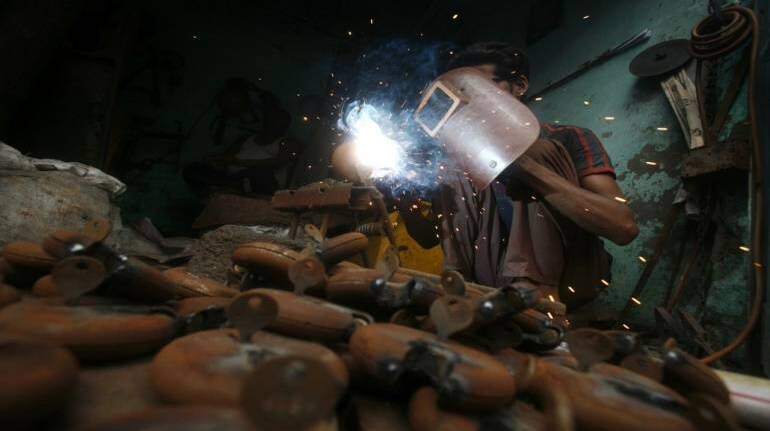



Liquidity issues faced by micro, small and medium enterprises (MSMEs) in India have been aggravated due to the novel coronavirus, or COVID-19, pandemic and the lockdown that followed. Even as almost every sector of the economy was dealt an unprecedented blow by the pandemic-led lockdown and halt in business activity, small businesses were among the worst-hit.
As per a report by credit rating agency Brickwork Rating, close to Rs3.3 lakh crore worth of MSME funds are stuck with strong large corporates in the form of receivables.
This is one of the many challenges faced by MSMEs. Two key things intensified the cash crunch being faced by MSMEs during the lockdown --lack of formal funding from the banking system and the delay in payments, the report noted.
Many small businesses are plagued by the issue of a stretched working capital due to delayed payments by buyers (private or even the government). In the case of large corporates, MSMEs witness delayed payments for materials supplied or services provided due to their low bargaining power with such entities.
The lack of access to formal funding from the banking system, a perennial problem that has plagued the sector, has seen recent government intervention. The Rs 3 lakh crore in collateral-free loans being provided to MSMEs in the form of an Emergency Credit Line Guarantee Scheme under the Atmanirbhar Bharat package is one such move to ease the sector's woes and help them mitigate the crisis that has reared its head amid the COVID-19 pandemic.
Finance Minister Nirmala Sitharaman on June 22 said the total amount sanctioned under the Emergency Credit Line Guarantee Scheme (ECLGS) by public sector banks and private banks stood at Rs 75,426.39 crore, of which Rs 32,894.86 crore has already been disbursed.
The report, however, notes that despite the MSME-focussed announcements made by the Centre as part of the financial relief packages, the sector continues to experience stretched liquidity "given the long credit period extracted from MSMEs by large corporates, many of which have sufficient liquidity of their own."
The study by Brickwork noted that while some such corporates have weak liquidity and credit profiles, which drives them toward extracting the maximum credit from their suppliers (MSMEs), others have strong credit profiles and liquidity.
Rajat Bahl, Chief Ratings Officer, Brickwork Ratings, said, "Even if 50 percent of the funds held up by strong large corporates with high creditor days are released, it will shore up liquidity for the MSME sector by around Rs 1.6 lakh crore and significantly reduce their liquidity pressure and working capital burden."
Discover the latest Business News, Sensex, and Nifty updates. Obtain Personal Finance insights, tax queries, and expert opinions on Moneycontrol or download the Moneycontrol App to stay updated!